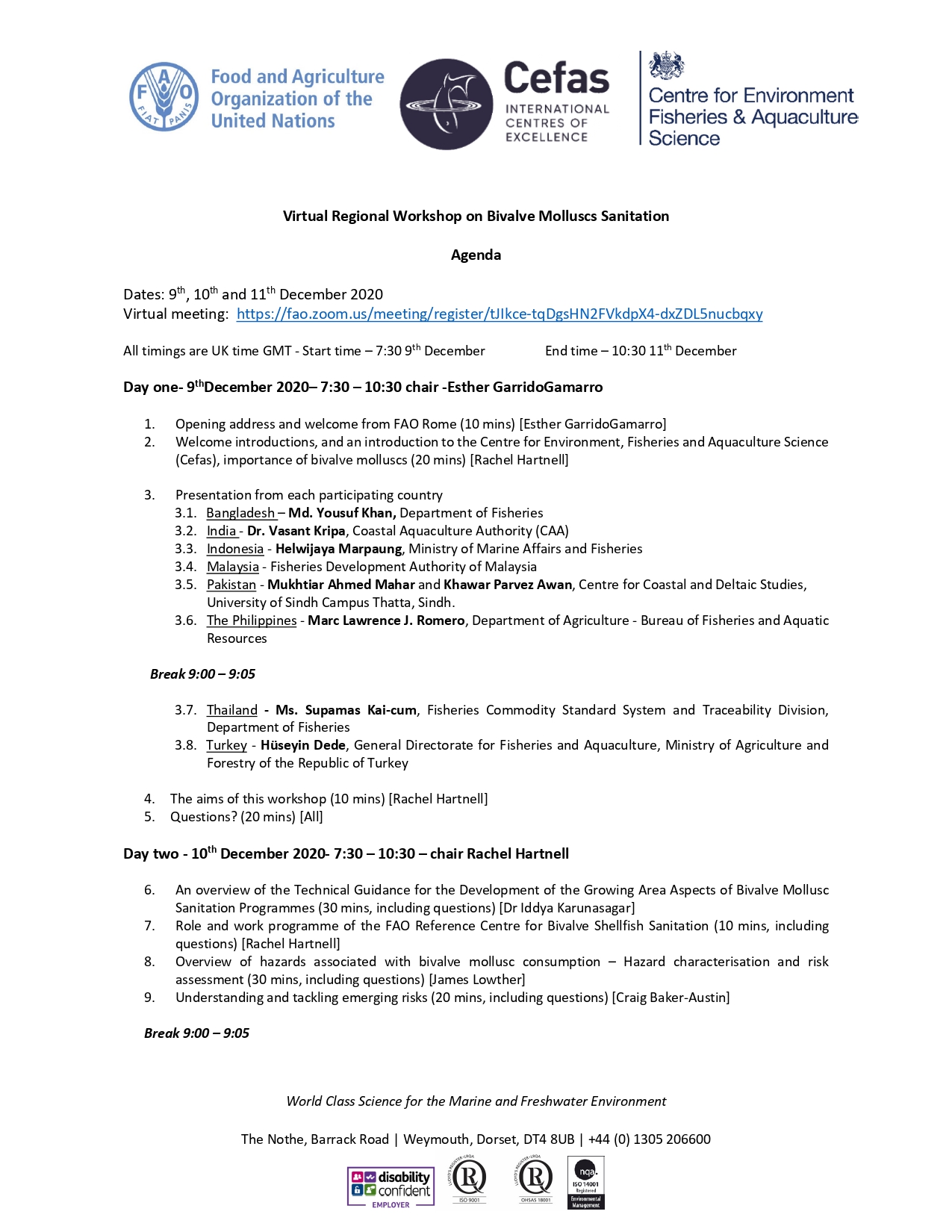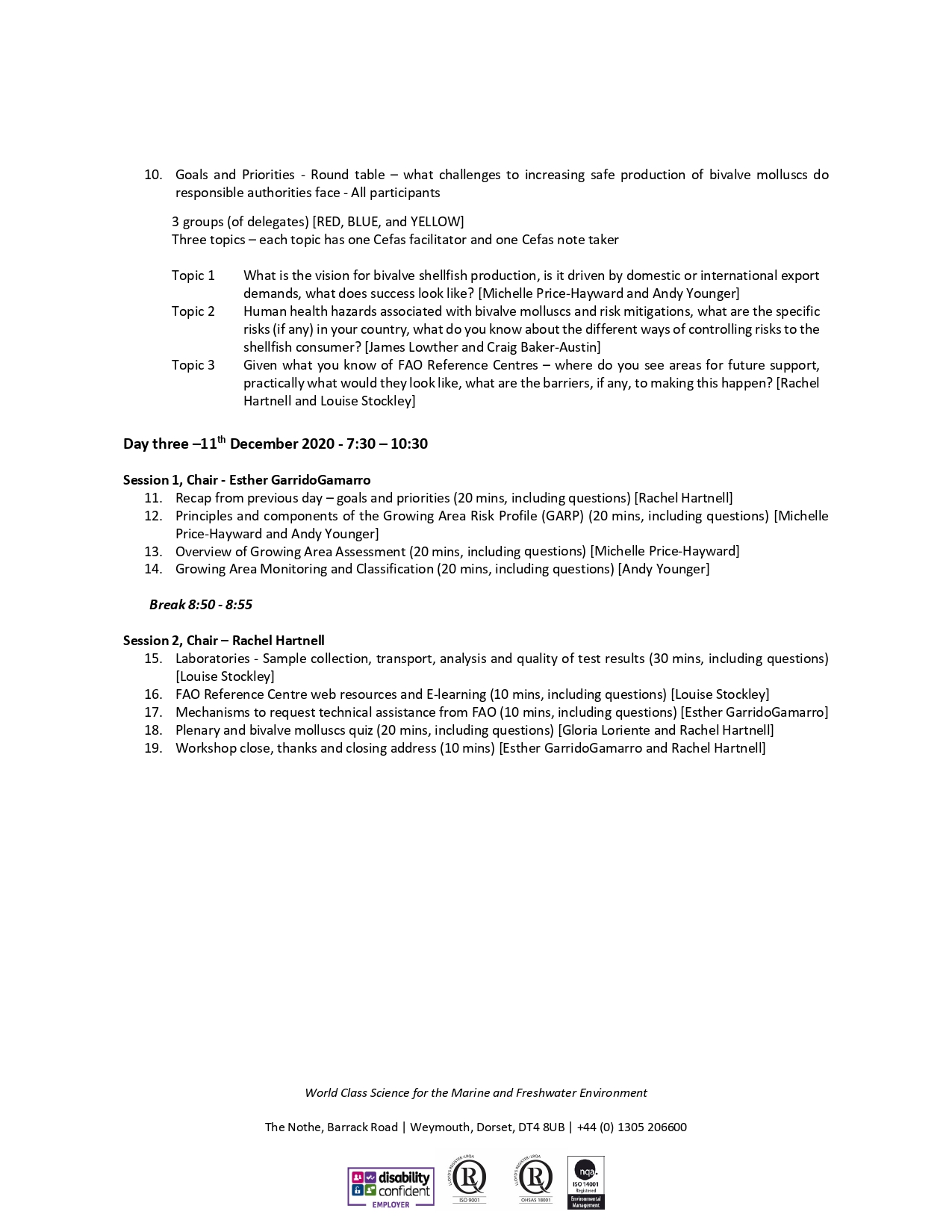Virtual workshop on bivalve mollusc sanitation
About
Speaker: Dr Iddya Karunasagar
Event: Virtual regional workshop on bivalve sanitation, organized by Food and Agriculture organization (FAO) and Centre for Environment fisheries and aquaculture Science (CEFAS),
Topic: An Overview of the technical guidance for the development of the growing area aspects of bivalve mollusk sanitation programme
Dr Iddya Karunasagar delivered an invited talk at the Food and Agriculture Organization (FAO) – Center for Environment, Fisheries and Aquaculture Science (CEFAS) of United Kingdom Virtual Workshop on bivalve mollusc sanitation held during Dec 9-11, 2020. Dr Karunasagar spoke about the FAO/WHO Technical Guidance for the Development of Growing Areas Aspects of Bivalve Sanitation Programme. While at FAO, Dr Karunasagar played a key role in the development of this guidance document through a series of Expert Consultations and field trials in Africa. According to FAO estimates, global bivalve mollusc production in 2018 was 17.7 million tonnes valued at 34.6 billion US$ with international trade valued at 4.26 billion US$. However due to filter feeding nature of bivalve molluscs, they can accumulate pathogens and toxins from the environment. In many parts of the world, bivalves like oysters and mussels are consumed raw and therefore, from food safety perspective, it is very important that they are grown in very hygienic water. Though the international food safety standard setting body, Codex Alimentarius Commission has standards for live and raw bivalve molluscs and a Code of Practice for their production, often the details provided are not adequate for countries to start their own mollusc sanitation programme.
Event Date : 2020-12-09
Venue : NA
Last updated 2021-06-12 05:39:48

